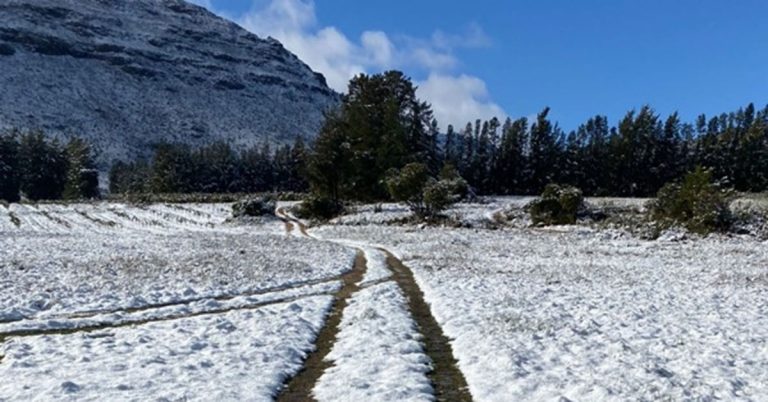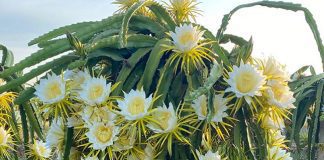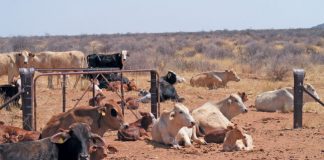
Photo: Gerrit van der Merwe
Farmers in the Western Cape have expressed great joy about the snowfall on various mountains across the province during the weekend of 28 and 29 August.
Gerrit van der Merwe, director of the Citrus Growers’ Association of Southern Africa in the Western Cape and citrus farmer near Citrusdal, said the snow lay much thicker and lower than usual on the mountains surrounding Citrusdal, with some of the higher lying orchards being covered with snow.
“Individual citrus farmers suffered losses, but these were mainly smaller farms at higher altitudes. Farmers are generally thankful for the snow as it would help to replenish [groundwater supplies] and boreholes,” he said.
Jan Rabie, a crop producer in the Robertson Valley, agreed: “The top third of the Langeberg Mountains were covered with snow, but nobody I know of suffered any losses. We are grateful to experience two consecutive good rainy seasons, following some really dry conditions and water shortages before then.”
Mario du Plessis, a farmer in the Warm Bokkeveld, said snow and rain were always welcome in winter, with nobody he knew suffering any losses in the region, as deciduous trees were still in “hibernation”.
Nevertheless, a few incidents of frost had been reported, which could become problematic once the wet conditions subsided.
“It looks as if the production season might be a week later than usual because of the cold, but it is still very early to say. We, nevertheless, would need warmer temperatures for good pollination starting from around two weeks from now.”
The Swartberge were also covered with snow, although not to the same extent as the mountains in the Boland.
Cornel Landman, owner of Karoo Lusern who farms near Oudtshoorn, told Farmer’s Weekly that while there was still widespread drought, the region’s farms located along the mountains were in a much better position thanks to the cold weather, with two of the fountains on one of his farms running strong again.
“It is a beautiful sight, making you excited to be farming.”
Most of the farms in the region, however, were dependent on the Kammanassie and Stompdrift dams.
The Stomdrift Dam stood at only 6,3% of capacity on Monday, 30 August, with the Kammanassie Dam being totally dry for the past two years.
“We are hoping for seasonal thunderstorms in September to help, but really need a flood to fill all the dams. Farmers have adapted their farming practices so much over the past few years to survive that it will be totally unreal to go back to farming as usual.”
Nico Uys, chairperson of the Red Meat Producers’ Organisation in the Western Cape, said that he has not received any reports of livestock farmers who had suffered losses.
“The cold might have affected lambs negatively, but […] will help with the recovery of veld and boost pasture production. The cold has the added advantage of breaking disease cycles.”
He added that farmers in the colder areas knew how to manage these cold fronts, usually taking their flocks to warmer areas or into sheds overnight.











